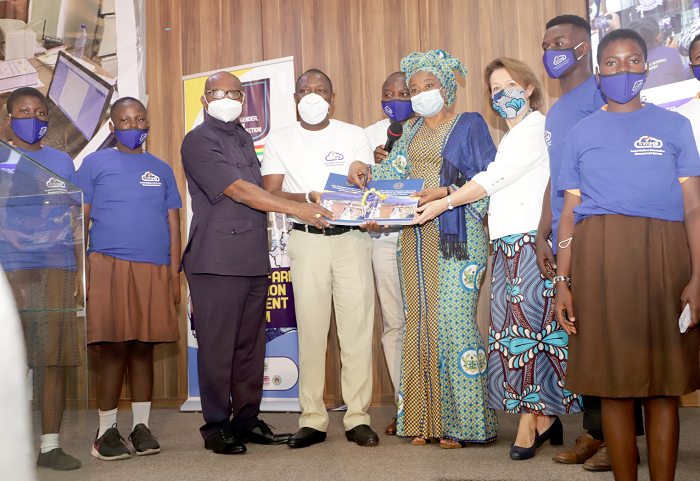
Ministry launches 3 work-related tools for children’s welfare
The Department of Social Welfare, under the Ministry of Gender, Children and Social Protection, has launched three work-related tools aimed at enhancing the work of the department and other agencies that seek the welfare of children and the vulnerable.
The tools are the Social Services Directory, a tool that forms part of the implementation of the Integrated Social Services Initiative to strengthen inter-sectoral collaboration for efficient service delivery to vulnerable populations.
The others are the Inter-sectoral Standard Operating Procedure (ISSOP) and the Social Welfare Information Management System (SWIMS), which will help address multi-dimensional poverty and vulnerability in the society.
The SWIMS adopts a software called “Primero,” which was developed by UNICEF and is a case management information system used to facilitate information sharing, referrals, monitoring and reporting among various actors and levels of governance.
Ghana is the first country, globally, to run the software’s latest version; the “Primero X”.
The tools were launched in collaboration with the Office of the Head of Local Government Service, and the Ministry of Local Government, Decentralisation and Rural Development, with funding from UNICEF.
Quality services
The Chief Director at the Ministry, Dr Afisah Zakaria, who launched the tools on behalf of the sector minister, Ms Sarah Adwoa Safo, said the tools were to equip social workers and social service providers to render quality services to vulnerable children and families, with a strong focus on promoting linkages between health, child protection, sexual and gender-based violence, and social protection services.
She said they would also focus on referral and standard procedures for domestic-based violence, teen pregnancy and child marriage, children in conflict with the law/ juvenile justice, children outside of parental or relative care and abandonment, child labour and trafficking, child maintenance and custody and finally, to the key social services for LEAP households and other vulnerable families.
"The government expects all social welfare and community development officers, as well as partners, to adopt and use these tools for the management of cases, family reunification, alternative care, information-sharing, incident monitoring and reporting," she added.
So far, she said, 993 officers from 100 district assemblies had been trained to help on the use of the tools, adding that 1,910 cases had been registered.
International best practices
The Head of the Office of Local Government Service, Dr Nana Ato Arthur, in a remark, said SWIMS would help to ensure international best practices and added that 60 MMDAs had been trained to use the system.
"The system lends itself for the data of a client to be stored and retrieved as and when necessary. Data retrieval again permits the smooth case management by officers irrespective of who started a particular case and who closes it,” he said.
Dr Arthur said the ISSOP was also a procedure where the Department of Social Welfare and community development partners worked with other entities to address issues of domestic violence, child abuse, child marriage, defilement and rape, among other cases, with inherent referral pathways, which basically directed officers to procedures for the resolution of the cases.
The UNICEF Country Representative in Ghana, Ms Anne-Claire Dufay, said the tools effectively supported Ghana's strategic vision in relation to decentralisation.
She said they were even more relevant today as the world was struggling with the COVID-19 pandemic, with children also suffering the brunt; hence, the need to strengthen the systems to respond to all of their multiple needs.
Writer’s email-rebecca.quaicoe-duho@graphic.com.gh
